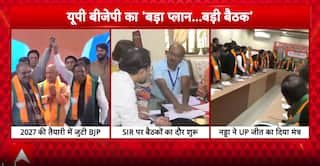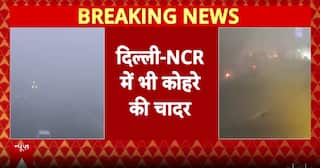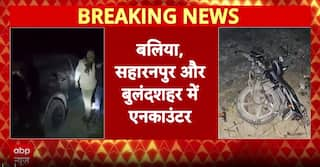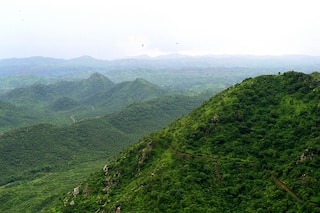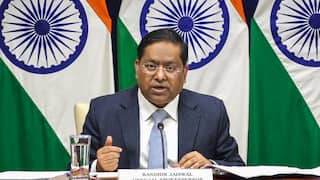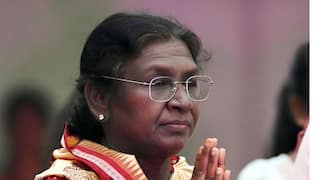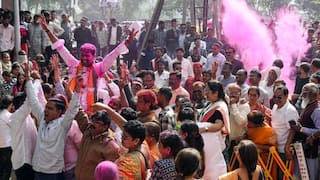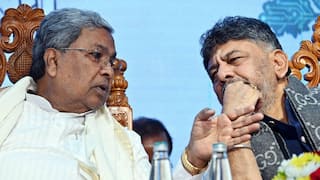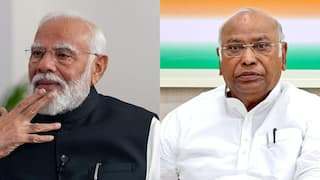Explorer
History, The Nation-State, And Self-Liberation: A Gandhian View Of Kashmir
The BJP claims that it is now freeing Kashmir from the stranglehold of a colonial-era politics and the Nehruvian dispensation which had no stomach for a truly manly politics.

An army soldier is silhouetted against the snow capped mountains of Kashmir. (Getty images)
The “integration” of Kashmir into India, or what some (if a distinct minority) would call its annexation by the Indian nation-state, has been discussed largely from the legal, national security, policy, and geopolitical standpoints. But what might a Gandhian reading of Kashmir look like? The BJP claims that it is now freeing Kashmir from the stranglehold of a colonial-era politics and the Nehruvian dispensation which had no stomach for a truly manly politics. The BJP is thus in the process of creating a narrative around the abrogation of Article 370, the removal of J & K’s “special status”, and the “opening up”—an expression that, in such contexts, has meant nothing more than asking for the abject surrender of a people to the regimes of neo-liberalization and rapacious “development”—of the state as the beginning of the “liberation” of Kashmir.
All of history is the constant struggle of people for liberation from forces of oppression. We need a narrative of liberation different from that which has peddled by the BJP, which I shall frame in three fragments, to unfold the history of Kashmir and the possibilities of redemption for its people. Swami Vivekananda, in a long visit to the Valley in 1897, is said to have been anguished at seeing the desecration of images of Hindu gods and goddesses. Bowing down before an image of Kali, Vivekananda asked in a distressed voice, “How could you let this happen, Mother? Why did you permit this desecration?” It is said that the Divine Mother said in response, “What is to you, Vivekananda, if the invader breaks my images? Do you protect me? Or do I protect you?”
Secondly, it is an indubitable if deplorable fact that a considerable number of people, especially in north India, began to view Gandhi towards the end of his life as “The Father of Pakistan”. Nathuram Godse was not alone in adopting this viewpoint: some others, too, saw him as the author of Pakistan and therefore willed Gandhi dead. But the designation of the “The Father of the Nation”, I would argue, is somewhat misleading for a wholly different reason. No nationalist was such a staunch critic of the idea of the nation-state; and no one endeavored with such assiduousness as Gandhi to bring women into the orbit of public life and feminize politics. Long before society started expecting men to be nurturing, Gandhi was articulating a space for the view that men should remain men even as they should seek to bring out the feminine within them just as women should remain womanly but seek to bring out the best of the masculine within them. The Mother in the “Father of the Nation” was doubtless more interesting than the Father in the “Father of the Nation” but in Modi’s India there is only contempt for such a view.
Also Read | Reterritorialization And Neo-Liberalization: “Opening Up” Kashmir
Thirdly, Gandhi’s little text of 1909, Hind Swaraj, must be recognized as the unofficial constitution of India. Gopalkrishna Gokhale, held up by Gandhi as one of his gurus, was acutely embarrassed by this tract and was certain that it was destined for oblivion. He advised Gandhi to dump it, but its author, as obdurate as ever, is famously on record as saying towards the end of his life that, barring a single word, he stood by everything he had written nearly 40 years ago. Its subtitle, Indian Home Rule, has led most readers to read it wholly as a tract for political emancipation from British rule. But deeper reflection has led other readers to the awareness that Hind Swaraj argues for a more profound conception of liberation, a liberation that frees one from the baser instincts, gives one raj (rule) over one’s own self, and allows one to own up to notions of the self that we may otherwise be inclined to discard.
Just how, then, do these fragments inform our understanding and move us closer to a long-term and not merely forced resolution of the conflict over Kashmir? It is the Home Minister’s contention that now, post-Article 370, terrorism will cease and Kashmir will be set on the path to “development”. But this is wholly delusory: my three fragments on offer point, respectively, to the necessity of liberation from history, liberation from the idea of the nation-state, and liberation from a strangulating conception of the ‘self’.
The champions of Hindutva have imagined themselves as the liberators of Hinduism itself, but their understanding of Vivekananda, whom they hold up as an icon of muscular India, is as shallow as their understanding of everything else. Hinduism can do very well without Golwalkar and Amit Shah: Do I protect you, or do you protect me, the Divine Mother asks. History is no guide here: many imagine that we only have to sift ‘myth’ from ‘history’, then install a “true history”, but history shackles as much as it emancipates. As Gandhi might have said, history takes care of itself. India is no ordinary nation-state, even if the greatest and most pathetic desire of the present political administration is to turn it into one: thus the obsessive fixation on Akhand Bharat, on the national flag, and on the national anthem.
Also Read | How Democracies Wither: The BJP’s Constitutional Coup d’état
There is no Hindu or even Indian “self” without the Muslim partaking in it. Munshi Ganesh Lal, who visited Kashmir in 1846 and recorded his observations in ‘Tuhfa-i-Kashmir (“Wonders of Kashmir”), found little to distinguish even the Kashmiri Pandits from Muslims. The world of Indian Islam is very different from the putatively authentic Islam of Arabia and west Asia. This is well understood in Pakistan, where, since at least the time of Zia-ul Haq, a rigorous attempt has been made to disown the indubitable fact that Islam in Pakistan belongs to the Indic world more so than it does to the world of West Asian Islam. The purists in Pakistan have met their match in the ideologues of Hindutva in and outside the Indian state who would like a pure nation-state even if they understand how mouthing pieties about Indian pluralism and the glories of diversity is politically desirable. What is singular about Kashmir, then, is precisely this: here we can see with clarity the impossibility of redemption until we have unshackled ourselves, as did Gandhi, from debilitating notions of history, an impoverished conception of the self, and the decrepit notion of the nation-state as the culmination of history.
(Vinay Lal is a writer, blogger, cultural critic, and Professor of History at UCLA)
Disclaimer: The opinions, beliefs and views expressed by the various authors and forum participants on this website are personal and do not reflect the opinions, beliefs and views of ABP News Network Pvt Ltd.
Follow Blog News on ABP Live for more latest stories and trending topics. Watch breaking news and top headlines online on ABP News LIVE TV
View More









